Free TradeAgreements
Investment Protection & Promotion Agreement
Double Taxation Avoidance Agreements
What are Free Trade Agreements (FTAs)
A Free Trade Agreement (FTAs) is an international agreement between countries aimed at promoting trade by reducing or eliminating barriers such as tariffs and quotas. They facilitate the exchange of goods, services, and investments by creating a more open and predictable trading environment. In general, FTAs remove barriers and promote free trade between countries, allowing participants to abide by agreed-upon laws and be treated as citizens of foreign countries when conducting business transactions.
The Benefits of Free Trade Agreements:

Facilitates imports and exports between countries

Stimulates inward flows of investment
Explores key manufacturing and service sectors
Creates global partnerships
Encourages the exchange of expertise to create jobs and stimulate growth
Bahrain’s Free Trade Agreements
Bahrain profits from multiple FTAs. Each has unique relationships and benefits, but they have all contributed to the expansion of multiple sectors and increased the economy of Bahrain. The Kingdom has seen a significant increase in import and export figures as it has built more FTA relationships, noticeably in the 32.60% increase in imports between 2013 and 2019.
Greater Arab Free Trade (GAFTA)
The Greater Arab Free Trade Area (GAFTA) is a pan-Arab free trade zone promoting economic integration and trading in the Arab world. It removes trade barriers and increases intra-regional transactions while promoting competition within domestic markets. Bahrain exports to the GAFTA totaled over USD 6.4 billion in 2021 and imports totaled USD 2.5 billion.
GCC Free Trade Agreement
The Economic Agreement between the GCC states was adopted by the GCC Supreme Council in December 2001. It grants national treatment to all GCC firms and citizens in any other GCC country. Doing so removes all barriers to cross country investment and trade. In 2021, there were over USD 5 billion in exports from Bahrain to GCC, and USD 2.3 billion in imports from this agreement alone.
GCC-Singapore Federal Trade Agreement (GSFTA)
The GCC-Singapore Federal Trade Agreement (GSFTA) allows GCC goods duty-free access to the Singaporean market. It includes trade in goods, customs procedures, rules of origin, as well as trade in services and government procurement. In 2021, Bahrain exports to Singapore totaled over USD 154 million and imports totaled USD 51 million.
GCC-EFTA Agreement
The FTA between the GCC and the EFTA states was signed into law in June 2009 and includes 93 articles and 16 annexes covering trade in goods, trade in services, competition, and more. This is a great example of a free trade agreement.
In the agreement, industrial goods, including fish and other marine products, benefit from duty-free access to EFTA States, while most products imported into the GCC have custom duties eliminated. In 2021, imports from this agreement to Bahrain totaled USD 303 million while exports totaled USD 16 million. In addition, bilateral arrangements on agricultural products between three individual EFTA States and the GCC have been established.
View the bilateral agreements on agriculture
ICELAND-GCC (229 KB) NORWAY-GCC (322 KB) SWITZERLAND-GCC (380 KB)
US-Bahrain FTA
Bahrain is the first Gulf Cooperation Council (GCC) member and third Arab country to enter into an FTA with the United States. In 2019, there was USD 1 billion in imports and USD 792 million in exports from this agreement.
This agreement carries specific rules of origin for both imports and exports. The traded good should
- Be made entirely in Bahrain or the US from Bahraini/US materials
- Or be made in Bahrain or the US from significantly transformed foreign material with at least 35% of the value from Bahraini/US materials and costs of processing
- And be exported/imported directly from Bahrain or the US. Combining/packaging operations and liquid dilution do not count as originating
In the first 10 years of the FTA, the US’ export growth with Bahrain significantly exceeded other FTA partners in the same time period.
- U.S. goods imports from Bahrain totaled $1 billion in 2019, up by 5.9% ($59 million) from 2018, and up by 143% from 2005 (pre-FTA)
- The top import categories in 2019 were: aluminum ($730 million), mineral fuels ($134 million), miscellaneous textile articles ($65 million), special other (returns) ($32 million), and plastics ($31 million)
Benefits of the US-Bahrain Free Trade Agreement
Preferential tariff rates
Eliminates all tariff and non-tariff barriers to trade. This reduces the cost burdens of exporting and increases the competitiveness of Bahrain products in US markets.
Duty-free and easier access to the US market
Eliminates all barriers to trade in services while opening the US market to Bahrain service providers. This presents an opportunity for Bahrain’s services to further expand as providers can arrange services through a local presence or across borders.
Investment
As part of the FTA, cross-country investment barriers are removed. When foreigners invest in participating countries, they are granted citizenship advantages.
Opportunities to leverage FTAs
Businesses in the manufacturing industries can face significant challenges with finances and logistics, but Bahrain makes the decision simpler. Companies in Bahrain benefit not only from international trade agreements but also lower costs, a strategic location, a highly skilled labor & workforce, and world-class infrastructure with favorable tax regimes in areas such as Bahrain International Investment Park (BIIP).




